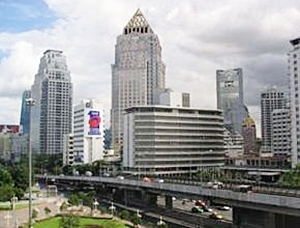SINGAPORE, Nov 23 -Standard & Poor’s Ratings Services on Wednesday affirmed its ‘BBB+/A-2’ foreign currency and ‘A-/A-2’ local currency sovereign credit ratings on Thailand, according to a statement released by the credit rating agency.
The outlook on both foreign and local currency long-term ratings remains stable.
Standard & Poor’s also affirmed the ‘axAA/axA-1’ ASEAN scale rating on Thailand.

The key supports for sovereign creditworthiness in Thailand remain its net external creditor position and relatively light net government indebtedness. These strengths balance Thailand’s low-income economy and continued political uncertainty, according to S&P.
The rating agency project Thailand’s foreign-exchange reserves to be US$173 billion (nine months of current account payments) by the end of 2011. The reserves offer a buffer against economic and financial shocks.
“Recent floods, which hit Thailand’s industrial estates and a part of its capital, Bangkok, will increase government expenditure for necessary infrastructure investments and financial support for the flood casualties,” said Standard & Poor’s credit analyst Takahira Ogawa.
“However, we believe the country’s relatively strong and flexible fiscal position could absorb this fiscal burden,” he said.
“Still, if the government’s preventive measures for future floods prove to be ineffective or inefficient, investors’ confidence in Thailand as one of the prominent production hubs in the region would be damaged. This, in turn, would adversely affect the medium- and long-term growth prospects of the country,” the rating agency warned.
“Political uncertainties have been an important credit weakness for Thailand in recent years. Investors, both existing and new ones, are now likely to factor in the risks stemming from political uncertainty when making long-term investments in the country,” S&P said, “Frequent changes of the government make structural reforms more difficult and hinder infrastructure investments, which could reduce the country’s potential growth in the long term.”
The rating agency noted that the stable rating outlook reflects its view that, despite the political uncertainties and the unstable government policy environment, there has been little damage to the real economy and the government’s fiscal position.
However, it warned that the rating on Thailand may be lowered if the fiscal position and economic indicators decline significantly due to the government’s populist policies.
Conversely, S&P said it may raise the rating if Thailand’s political situation returns to stable, which in turn would improve economic growth prospects and the government’s fiscal position.




